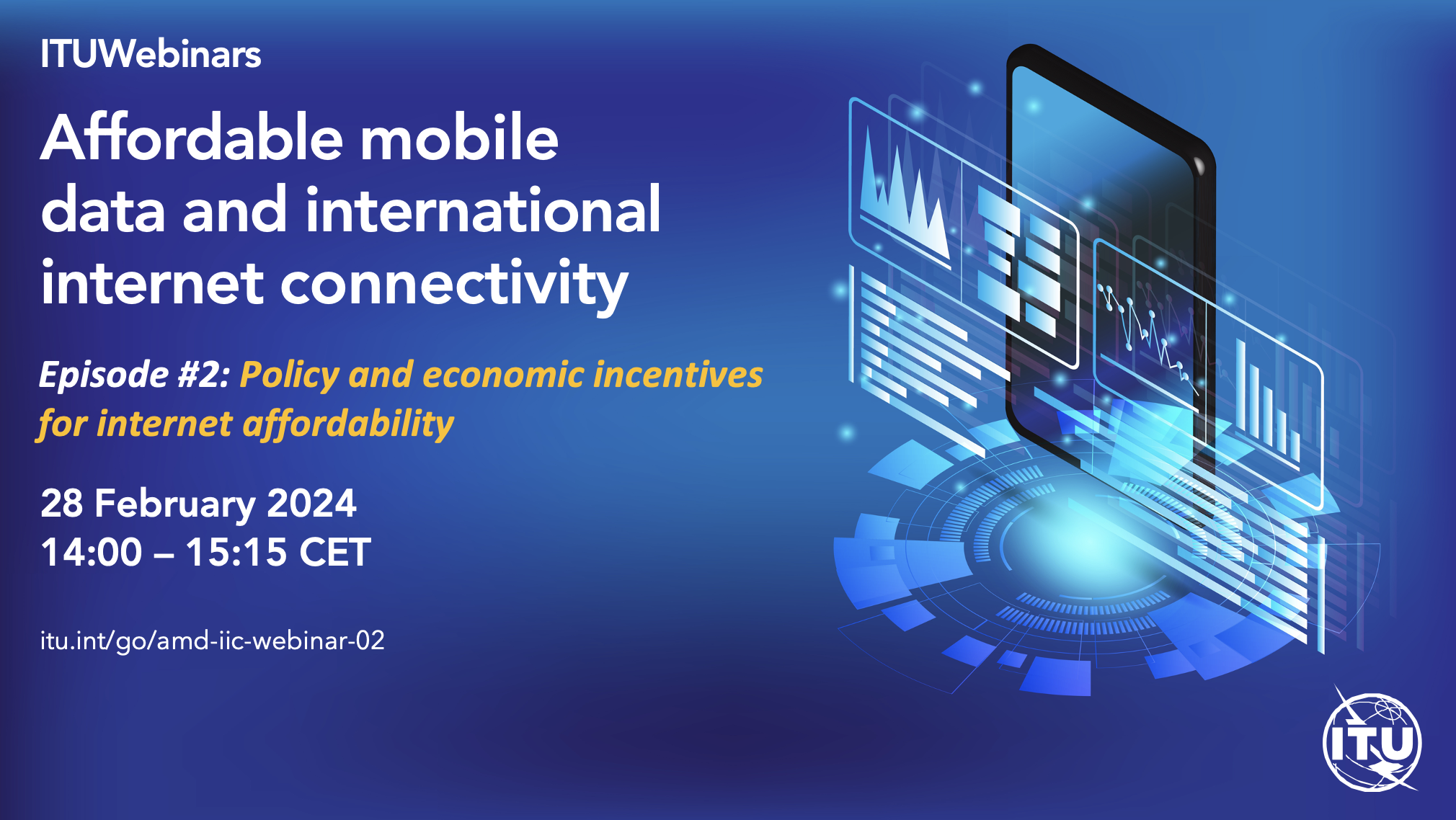

The ITU-T Focus Group on costing models for affordable data services is analyzing the supply chain of telecom/ICT, the multiple cost models and pricing strategies used for mobile data services and Internet services as well as studying the policy, economic, regulatory, and standardization aspects related to cost models for affordable data services, including best practices of cost assessment methodologies and economic models. As part of its activities, the Focus Group is organizing a series of webinars targeting the areas of focus under study.
The purpose of the webinar is to explore how government policies and economic measures can influence the cost and accessibility of Internet services especially for landlocked developing countries (LLDCs) and small island developing states (SIDS).
The second episode of this webinar series will focus on Policy and economic incentives for internet affordability and will take place on 28 February 2024 from 18:30 IST.
Efforts to enhance the affordability of international internet connectivity require a multifaceted approach incorporating both policy framework and economic incentives. Policymakers often aim to foster competition among service providers, encourage innovation, and drive down costs. Additionally, regulatory measures can promote infrastructure development ensuring that diverse regions have access to robust connectivity.
Economic incentives play a pivotal role in attracting private investment in the expansion and maintenance of Internet infrastructure. Governments may offer tax breaks or subsidies to incentivize companies to invest in underserved areas. Collaboration between government, private sector, and international organizations becomes essential to create a sustainable model that balances affordability and quality of service.
Therefore, striking the right balance between policy and regulatory frameworks and economic incentives is crucial for achieving an affordable and accessible internet.
Objectives of the webinar:
The purpose of the webinar is to explore how government policies and economic measures can influence the cost and accessibility of Internet services especially for landlocked developing countries (LLDCs) and small island developing states (SIDS).
The second episode of this webinar series will focus on Policy and economic incentives for internet affordability and will take place on 28 February 2024 from 18:30 IST.
Efforts to enhance the affordability of international internet connectivity require a multifaceted approach incorporating both policy framework and economic incentives. Policymakers often aim to foster competition among service providers, encourage innovation, and drive down costs. Additionally, regulatory measures can promote infrastructure development ensuring that diverse regions have access to robust connectivity.
Economic incentives play a pivotal role in attracting private investment in the expansion and maintenance of Internet infrastructure. Governments may offer tax breaks or subsidies to incentivize companies to invest in underserved areas. Collaboration between government, private sector, and international organizations becomes essential to create a sustainable model that balances affordability and quality of service.
Therefore, striking the right balance between policy and regulatory frameworks and economic incentives is crucial for achieving an affordable and accessible internet.
Objectives of the webinar:
- To illustrate the distinct challenges LLDCs and SIDs encounter in terms of international internet connectivity and explore tailored solutions.
- Examine how policy frameworks can be adapted to address the geographical constraints of landlocked nations and SIDs, promoting connectivity and affordability.
- Discuss strategies for prioritizing and investing in critical internet infrastructure to overcome logistical challenges and improve connectivity.
- Explore economic incentives that are particularly beneficial to landlocked countries and SIDS, attracting investment and fostering connectivity.
- Discuss the importance of regional collaboration and cross-border initiatives to enhance international Internet connectivity for landlocked nations.
Target audience: Telecom regulators, mobile network operators, industry associations, cost model experts, policymakers, Internet Exchange Point operators and Internet service providers
No comments:
Post a Comment